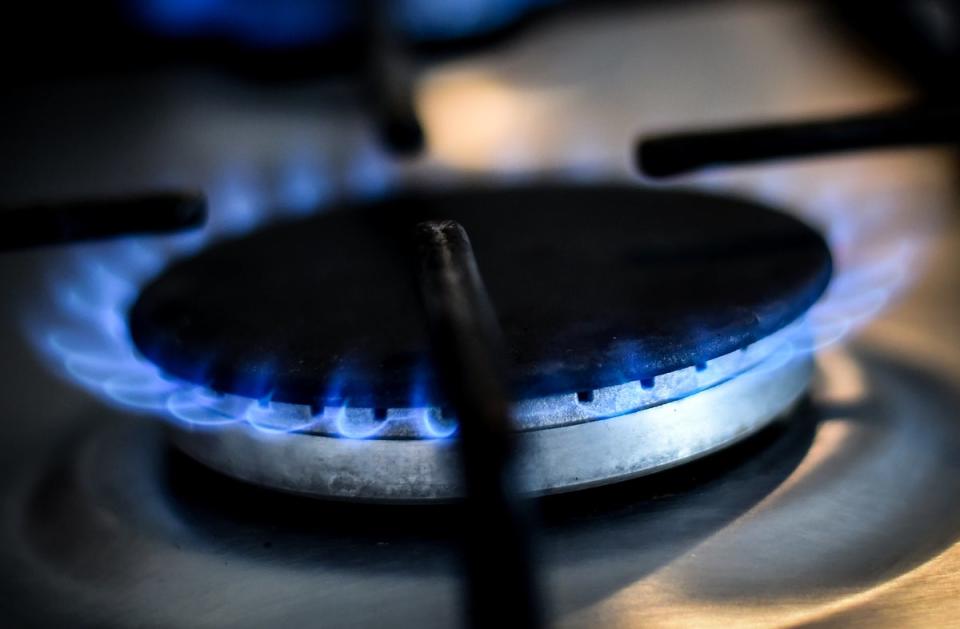Millions face ‘unmanageable’ energy bill debts unless government urgently offers more help, MPs warn

Soaring energy prices will push millions of people into "unmanageable" debt this winter unless the government urgently overhauls its support for families struggling to make ends meet, MPs have warned.
The government has been urged to look at introducing a "social tariff" to help vulnerable people cope with huge energy bill rises, as experts forecast that the price cap will hit £3,244 for an average home by October.
MPs on the influential business select committee said enrgy regulator Ofgem had been "negligent" and called for an immediate review of the financial support on offer to people.
It said ministers should consider scrapping the heavily criticised energy price cap and replacing it with a discount tariff for people most in need.
The new tariff would set the amouont which vulnerable households pay for their bills, rather than mandating a maximum price per unit of gas and electricity as the current price cap does.
MPs on the committee highlighted problems with the targeting of support already announced by former chancellor Rishi Sunak, which had meant that people with multiple properties had received multiple payments.
Relatively wealthy pensioners with no mortgage had also benefited while some poorer families had lost out, the committee said.
Then biggest problem, however, was that the payments were simply inadequate, according to the committee.
When Mr Sunak announced the support, the energy price cap was forecast to rise to around £2,800 in October. It is now forecast to hit £3,244.
Then committee also called for a massive drive to insulate homes in order to bring down bills.
"Once again, the energy crisis is racing ahead of the Government," said Darren Jones, the chair of the Business, Energy and Industrial Strategy committee.
"To prevent millions from dropping into unmanageable debt it's imperative that the support package is updated and implemented before October, when the squeeze will become a full-on throttling of household finances and further tip the economy towards recession."
The committee has been hearing from experts, ministers and industry insiders for months.
"We were told by a number of witnesses, 'if you think things are bad now, you've not seen anything yet'," Mr Jones said.
"This winter is going to be extremely difficult for family finances and it's therefore critical that public funds are better targeted to those who need it the most."
Earlier this year, Mr Sunak announced a support package that gave £400 energy bill discounts to all households, £650 to another eight million low-income households, £150 for those on disability benefits and £300 for pensioners.
The committee accused Ofgem of "incompetence over many years" which allowed poorly run and backed companies to start energy companies.
When a supplier fails some of the cost of dealing with its collapse is spread across all households in Great Britain.
"Ofgem failed to use its existing powers and didn't bring action against energy suppliers even when it was clear that they should have done," the committee said.
It added: "Negligent energy regulator Ofgem enabled now bankrupt energy firms and inexperienced CEOs to increase energy bills further."
Ofgem said the massive gas price spike "would have resulted in market exits under almost any regulatory system", but admitted its previous regime was "not robust enough" and this contributed to some suppliers failing.
"No regulator can, or should, guarantee companies will not fail in a competitive market, but we are working hard to reform the entire market as well as closely scrutinising and holding individual energy suppliers to account, to further strengthen the regulatory regime," it said.
The Department for Business, Energy and Industrial Strategy (Beis) said: "No national government can control global inflationary pressures; however, we have introduced an extraordinary package of support to help households."
MPs also concluded that while the Government can step in with support now as gas bills soar, in the long run it needs to reduce the demand for energy.
Britain has the worst insulated homes in Europe, and a major upgrade programme can not only reduce energy bills, it can also help the country reach its climate change targets.
A fully funded national campaign to insulate homes "street by street, community by community" is needed, the committee said.
Mr Jones said: "Ultimately, ministers know that the long-term solution is to reduce our need for energy through insulation works that keep our homes warm in winter and cool in summer.
"If the Government is really taking this energy crisis and the country's net zero targets seriously it will come forward with a bold, fully funded, national home insulation programme before the end of the year."

 Yahoo Finance
Yahoo Finance 